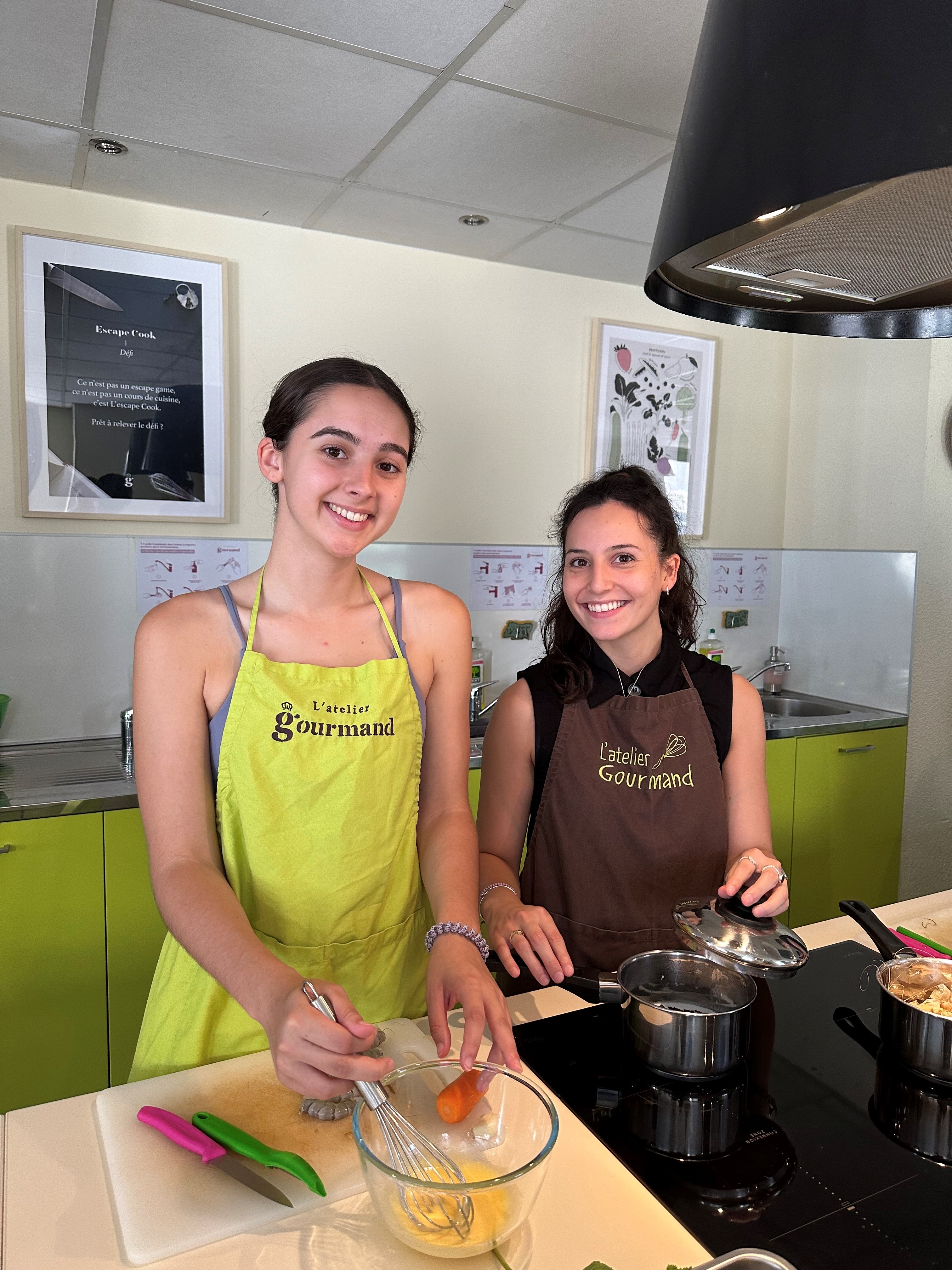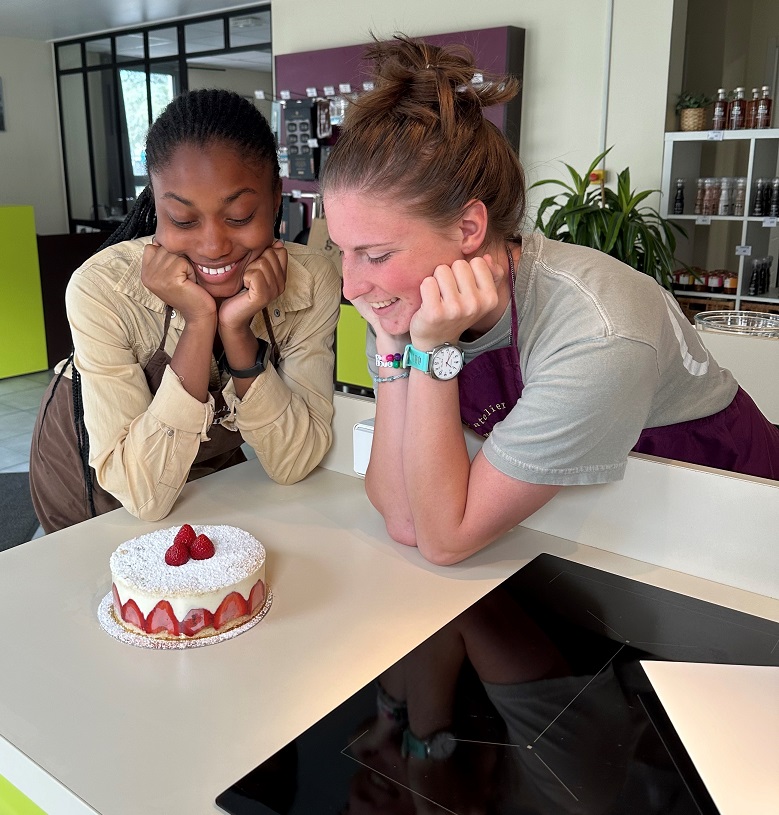
Aug 28, 2024
In what has to be a first for a Georgia Tech course, students are calling a class offered to Yellow Jackets enrolled in the Biomolecular Engineering, Science, and Technology (BEST) Study Abroad program in Lyon, France délicieux (delicious!).
The recently-developed course, Chemistry 2801 Special Topics: Cooking, Chemistry, and the Senses, explores the link between chemistry, biology — and food.
Created by Cameron Tyson, principal academic professional and assistant dean for Academic Programs for the College of Sciences, the class combines chemistry lectures with four cooking sessions led by a chef from Lyon’s L’Atelier Gourmand cooking school.
“I wanted students to enjoy connecting science — particularly chemistry and biology at the molecular level — with the sensory perception of what they eat, smell, and taste,” says Tyson.
Each classroom lecture focused on a particular food category and explored the science behind it. Discussions centered on building blocks like carbohydrates, proteins, fats/oils, and water with applications to specific foods like fruits, cheeses, and meats.
Lyon’s reputation as a city well-known for food played a factor in Tyson’s decision to offer the class. Tyson selected local foods to supplement the lectures; he brought marzipan, a French candy, for his sugar and carbohydrates lesson and grapes for a wine-centered lecture.
“Lyon is famous around the world for its gastronomy,” says Tyson. “As a foodie who loves to try new things, I enjoyed the opportunity to bring French culture and cuisine into a chemistry class.”
The students appreciated the nontraditional — and flavorful classes.
“Professor Tyson made the class enjoyable, interactive, and practical,” says fifth-year Chemical Engineering major Oluwadarasimi (Dara) Jakande. “My favorite part was the treats he brought to every class based on each topic he taught. Once, he made us do a blind taste test which was so much fun.”
Third-year Biochemistry major Kaya McClincy agrees: "Sampling all the different cheeses was especially interesting. I learned that French cheese has a much stronger taste than the cheese in the States, and I found I do not enjoy soft cheeses as much as I thought!"
The joy of cooking
Leveraging his background in chemistry, L’Atelier Gourmand chef Basile Trichakis guided students through menus, mirroring concepts Tyson taught in his lectures and ending with time for students to consume their culinary creations. Class favorites included pork filet mignon, pêche rôtie à la camomille sauvage (a dessert made with French peaches), shrimp bisque, and a mojito parfait.
“He helped make the course super enjoyable because he understood our brains as chemistry students,” says third-year Chemistry major Samantha (Sammy) Rizzo. “While making delicious meals, we also learned about the makeup of food and why certain ingredients add flavor to a dish.”
The students worked in pairs, collaborating on special projects and food preparation. For the final project, students created a recipe and presented information about the chemistry behind a particular ingredient and how it relates to sensory perception.
“I learned that cooking is not just an activity, it’s an art — and that every aspect of cooking involves a chemical concept,” says Jakande. “For example, we learned about the Maillard reaction which occurs when heat transforms amino acids and proteins in food, creating a new flavor, color, and sometimes texture.”
Rizzo also cited the dual nature of the class as helpful.
“It’s one thing to hear why a molecule makes something taste a certain way or how it’s sometimes better to tear an herb rather than cut it, but you really understand it when you actually create and consume a meal using the information you learned in class,” explains Rizzo.
Plans are already underway to offer the class next summer in Lyon.
“It was a great first run,” says Tyson. “I love seeing that spark in students when they are learning something they know they will use every day and certainly cooking and food fits that category.”

